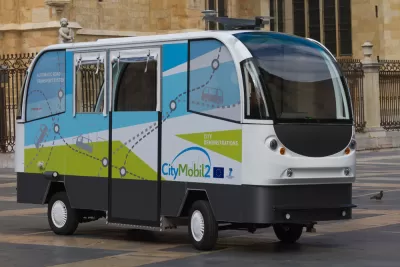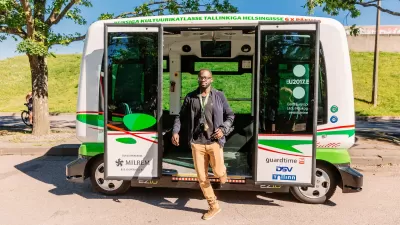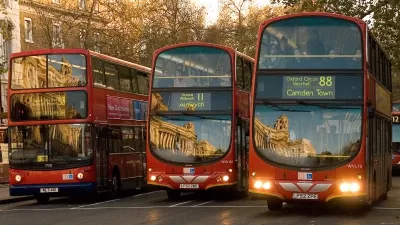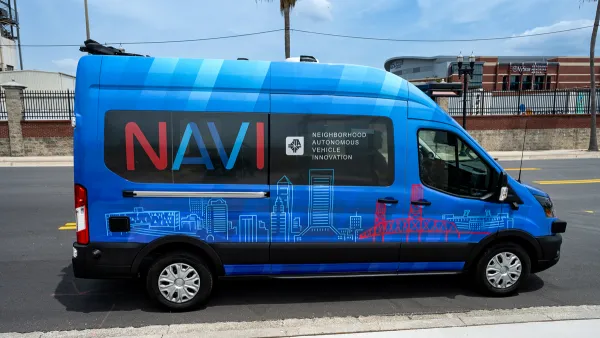It might be fun to imagine a a world filled with self-driving cars, reducing traffic and improving safety with one silver bullet. The more realistic short-term scenario, however, deploys low-speed, self-driving buses on private campuses.

According to an article by Nathaniel Mott, "while much of the focus has been on personal vehicles, public transit is more than likely going to be where we see [autonomous vehicle technology] adopted sooner."
To back that claim, Mott focuses on the self-driving bus project called Olli, interviewing project manager Jonathan Garrett. Olli is the work of Local Motors, a vehicle technology company located in Phoenix, Knoxville and National Harbor.
In the interview, Garrett explains why Local Motors chose a bus for the Olli project:
One of the reasons we’re tackling a low-speed, shared-use vehicle is because it’s easier to deploy. Being classified as a low-speed vehicle means you don’t have to meet certain regulatory requirements and you can operate much more easily on private campuses. So you’re going to see it in environments like that.
Garrett also talks about self-driving buses as a first-last mile solution for transit, the potential of self-driving technology in rural areas, the potential cybersecurity risks of autonomous vehicles, and more.
FULL STORY: Your First Autonomous Vehicle Experience Will Be in a Bus Like This

Planetizen Federal Action Tracker
A weekly monitor of how Trump’s orders and actions are impacting planners and planning in America.

Chicago’s Ghost Rails
Just beneath the surface of the modern city lie the remnants of its expansive early 20th-century streetcar system.

San Antonio and Austin are Fusing Into one Massive Megaregion
The region spanning the two central Texas cities is growing fast, posing challenges for local infrastructure and water supplies.

Since Zion's Shuttles Went Electric “The Smog is Gone”
Visitors to Zion National Park can enjoy the canyon via the nation’s first fully electric park shuttle system.

Trump Distributing DOT Safety Funds at 1/10 Rate of Biden
Funds for Safe Streets and other transportation safety and equity programs are being held up by administrative reviews and conflicts with the Trump administration’s priorities.

German Cities Subsidize Taxis for Women Amid Wave of Violence
Free or low-cost taxi rides can help women navigate cities more safely, but critics say the programs don't address the root causes of violence against women.
Urban Design for Planners 1: Software Tools
This six-course series explores essential urban design concepts using open source software and equips planners with the tools they need to participate fully in the urban design process.
Planning for Universal Design
Learn the tools for implementing Universal Design in planning regulations.
planning NEXT
Appalachian Highlands Housing Partners
Mpact (founded as Rail~Volution)
City of Camden Redevelopment Agency
City of Astoria
City of Portland
City of Laramie





























